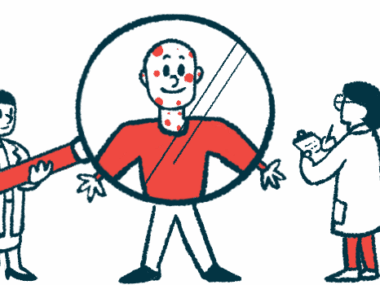Losing your career and income can mean losing your identity
Who was I without my job and paycheck? aHUS forced me to find out.
Written by |

In American society, work life is a huge part of our culture. Many of us are pushed to complete primary school, attend higher education, and start a career, in which we’re expected to work until full retirement age. According to the Social Security Administration, that should be age 67 for anyone born in 1960 or later. That means most of us are expected to work 45 years — or more.
Before I nearly died from the rare disease atypical hemolytic uremic syndrome (aHUS) in 2020, my job was not only my main focus, but also a huge part of my identity. I was an educator, a teacher, and a leader in my field. But when I left work early that fateful day in September 2020, I had no idea it’d be the last day I’d work in my career.
I was going into my 20th year in education, had parted ways with the preschool I’d opened, and moved to a new city where the pay was higher. I’d started a new job making more then I’d ever made, and I was considered a leading authority in my field.
Every single choice I made in life always considered two things: my children and my job. Want to take a vacation? Need to see if the job will approve the time off. Have an appointment to attend? Need to see if the job will approve the time off. Have an emergency at your home, like a water leak or something? Need to see if the job will approve time off. Get sick and need time to rest? Need to see if the job will approve missed days.
Withdrawing from work culture
Sadly, lots of people deal with this dynamic. Many employers act as though employees don’t have lives outside of their job. In education, we’re practically expected to never need time off and to never get sick. When I started to show signs of illness in March 2020 — six months before I finally went to the hospital — I knew we were short-staffed at my job, so I just kept brushing off my symptoms.
Even when I was in the hospital literally dying, my school asked multiple times when I’d be back. Because me dying was a huge inconvenience. And even while dying, I still felt guilty and upset that I was missing work.
As days turned into weeks in the hospital, my prognosis worsened. It took five weeks just to get a diagnosis. Doctors hoped the multiorgan damage caused by my aHUS was temporary. But it became clear that much of my liver and kidney damage was permanent. I had other daunting comorbidities and a lifelong dependency on Soliris (eculizumab), a monoclonal antibody treatment that has tons of side effects.
The first issue with being unable to work is the obvious: no income. I had two little boys to support, as well as a home, car, and life to pay for. Everyone said I should focus on my health and getting better, but that’s the most ridiculous thing for people to tell you. While I was dying, for instance, my life outside the hospital was falling apart. Bills don’t wait for you to “focus on getting better.” I ultimately lost everything I’d built: my home, my car, and my career.
The next issue may seem small compared with losing everything. But my bigger question was, “Who am I without a job?” I’d spent my entire life chasing income, always looking for the better job, higher pay, more recognition, and more success. Having a job was top priority, because it meant being able to live and provide for my family.
After a two-and-a-half-year battle, I finally obtained disability income. I can’t accurately convey how life-changing this step was. For the first time in almost three years, my financial weight was lifted. I’d spent that time in desperate survival mode, just dragging myself through each day. With that part of my life under control, I had to ask myself, “Who am I?”
Who is this new version of myself? The old Shay was career-driven and work-obsessed. But now I was wondering what I’d do with my days now that work was off the table. This year will be my fifth since this health journey began, and I’m still working to answer this question.
Having time for family, friends, and life experiences is 1,000 times more important then any paycheck. I never would’ve come to that conclusion if I’d still been working full time. I would’ve just continued the rat race in which I’d been assimilated. It’s amazing how little money I need to live on.
Dare I say that getting sick has had positive consequences as well. It made me realize that work is not — and should not be — the most important part of my life. Each day is a new adventure and a new opportunity to rewrite my story.
Note: aHUS News is strictly a news and information website about the disease. It does not provide medical advice, diagnosis, or treatment. This content is not intended to be a substitute for professional medical advice, diagnosis, or treatment. Always seek the advice of your physician or other qualified health provider with any questions you may have regarding a medical condition. Never disregard professional medical advice or delay in seeking it because of something you have read on this website. The opinions expressed in this column are not those of aHUS News or its parent company, Bionews, and are intended to spark discussion about issues pertaining to aHUS.






Leave a comment
Fill in the required fields to post. Your email address will not be published.